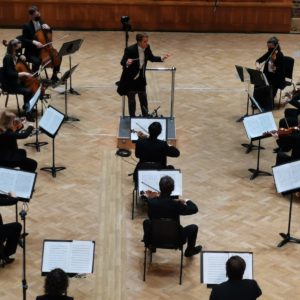Spain wins third major contest
mainThe Donatella Flick LSO Conducting Competition was won last night by Julio García Vico, 29, from Cadiz, in Spain.

This follows wins by pianist Juan Pérez Floristán at the Rubinstein Competition in Tel Aviv and the violinist María Dueñas at the Menuhin in Virginia. Something must be going right in Spanish music teaching.






Comments